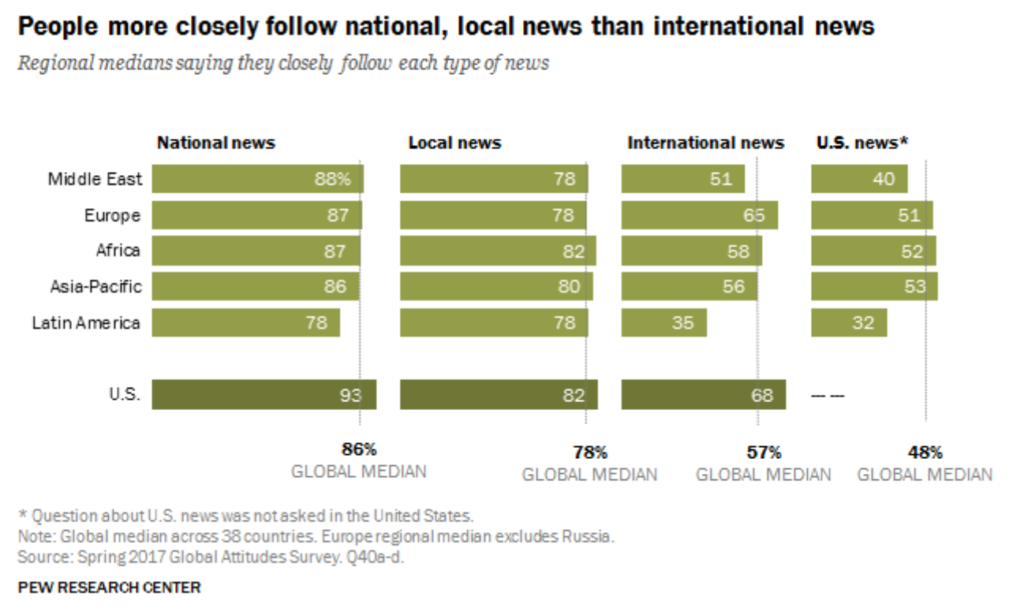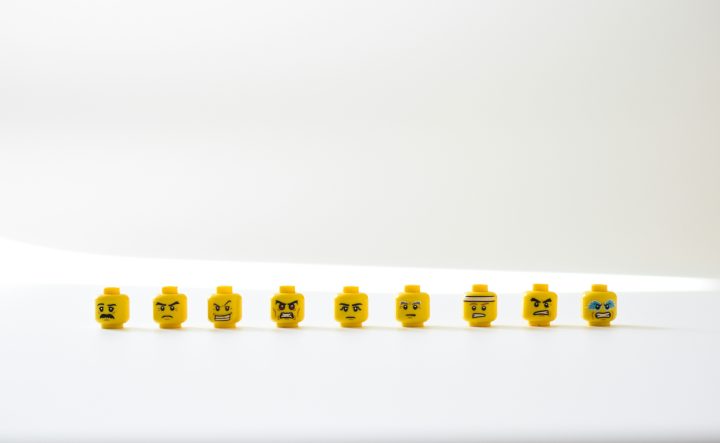Reading helps you learn something new. Even if it would be a fiction book, it will at least color your vocabulary.
Learning something new is not necessarily the case that comes to your mind when you open your local newspaper in the morning and start browsing through with your perfectly made cappuccino in the other hand. It’s just the way to get your day going. At least in our family.
From time to time, we have subscribed international newspapers at home. Not because local news media would have necessarily poor quality, more to get different perspectives. The sad part of this is that getting international papers delivered on the same day is almost an impossibility. Well, you enjoy it still, but it’s not the same when you have to read yesterday’s paper.
I’m not interested, it’s not within our borders
According to Pew Research center, People are much less interested in news about other countries (global median of 57%). In only six countries do more than two-thirds say they pay close attention to news about the rest of the world. People outside of the U.S. express a similarly low level of interest in news specifically about the U.S. (48%).

For international news, in general, men and those with more education are more likely to follow international news.
From fake news to cognitive bias
Craig Silverman showed in his analysis few years back that the top 20 fake news stories generated more clicks than the top 20 stories from every major publication combined during the 2016 election cycle. And not only do we click on fake news stories, but we believe them 75% of the time.
Cognitive biases are systematic errors in judgment that human beings consistently make. Here you can find 10 cognitive biases that help explain why we will never stop falling for fake news
The questions here are :
- How fake news is possible in an age when we have instant access to the entirety of human knowledge in our reach?
- How would we learn to spot fake news and not to build more cognitive bias?
Avoiding cognitive bias or welcoming more fake news?
As a disclaimer I have to say, this post is not a political statement but an experiment I wanted to have.
At the beginning of July, I installed a few additional apps on my phone as a test. I chose a few news agencies, Al Jazeera, Africa Report, CNA, and so on. No US-based agencies this time. My aim was to follow stories from the apps for a while and see how the point of view changes depending on the origin of the news agency, and man, have I enjoyed it!
I have read so many absolutely brilliant columns and articles written by amazingly talented journalists.
Neuroscientists have proven, that insight is the most powerful learning tool we have. The major thing I have gained is perspective. The same thing can be said so many ways and heard with so many nuances. My insight here was to really notice how individual reporters’ choices shape our understanding of the events and issues.
Dare to try
If you’re up for the challenge. Pick up a few apps or sites, follow those with the frequency you choose, and let the different perspectives soak in.
Here you can find TOP 200 news agencies, to choose from 🙂 Enjoy!




